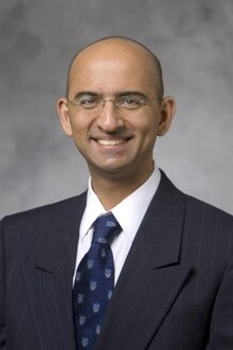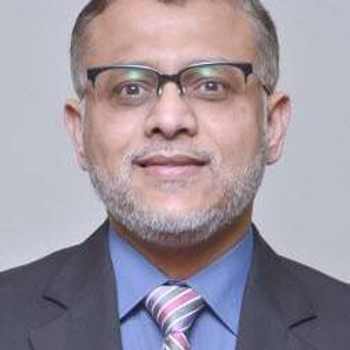MediFind found 1590 doctor with experience in Heart Failure. Of these, 1467 are Experienced, 102 are Advanced and 11 are Distinguished.
Duke Primary Care Midtown
Rushad Shroff is a primary care provider, practicing in Geriatrics and Internal Medicine in Raleigh, North Carolina. Dr. Shroff is rated as an Experienced provider by MediFind in the treatment of Heart Failure. His top areas of expertise are Familial Hypertension, Hypertension, Glucocorticoid-Remediable Aldosteronism, and High Cholesterol. Dr. Shroff is currently accepting new patients.
Dahlia Physician Housecalls
Tacara Soones is a primary care provider, practicing in Geriatrics and Internal Medicine in Houston, Texas. Her top areas of expertise are Orthostatic Hypotension, Familial Hypertension, Hypertension, and Low Blood Pressure.
Syed Mohsin is a primary care provider, practicing in Geriatrics and Internal Medicine in Evergreen Park, Illinois. Dr. Mohsin is rated as an Advanced provider by MediFind in the treatment of Heart Failure. His top areas of expertise are Glucocorticoid-Remediable Aldosteronism, Familial Hypertension, Hypertension, Gastrostomy, and Endoscopy.
Texas Health Physicians Group
Paul Anthony is a primary care provider, practicing in Geriatrics and Internal Medicine in Plano, Texas. Dr. Anthony is rated as an Experienced provider by MediFind in the treatment of Heart Failure. His top areas of expertise are High Cholesterol, Infant Hyperglycemia, Sitosterolemia, and Folate Deficiency.
University Of Virginia Physicians Group
Andrew Wolf is a primary care provider, practicing in Geriatrics and Internal Medicine in Charlottesville, Virginia. Dr. Wolf is rated as an Experienced provider by MediFind in the treatment of Heart Failure. His top areas of expertise are Maturity Onset Diabetes of the Young, Type 2 Diabetes (T2D), Familial Hypertension, and Hypertension. Dr. Wolf is currently accepting new patients.
Franciscan Medical Group
Anna Troncales is a primary care provider, practicing in Geriatrics and Internal Medicine in Tacoma, Washington. Dr. Troncales is rated as an Experienced provider by MediFind in the treatment of Heart Failure. Her top areas of expertise are Atrial Fibrillation, Hypertension, Glucocorticoid-Remediable Aldosteronism, and Familial Hypertension. Dr. Troncales is currently accepting new patients.
Main Line Healthcare
Manjit Singh is a primary care provider, practicing in Geriatrics and Family Medicine in Bryn Mawr, Pennsylvania. Dr. Singh is rated as an Experienced provider by MediFind in the treatment of Heart Failure. His top areas of expertise are Pulmonary Embolism, Hypertension, Glucocorticoid-Remediable Aldosteronism, and Familial Hypertension.
Pratt Medical Group Inc
Fadi Ramadan is a primary care provider, practicing in Geriatrics and Internal Medicine in Boston, Massachusetts. Dr. Ramadan is rated as an Experienced provider by MediFind in the treatment of Heart Failure. His top areas of expertise are Alkaptonuria, Chronic Cough, Vertigo, Type 2 Diabetes (T2D), and Hip Replacement. Dr. Ramadan is currently accepting new patients.
Texas Health Physicians Group
Jennifer Attmore is a primary care provider, practicing in Geriatrics and Internal Medicine in Plano, Texas. Dr. Attmore is rated as an Experienced provider by MediFind in the treatment of Heart Failure. Her top areas of expertise are Sitosterolemia, High Cholesterol, Vitamin D Deficiency, and Hypertension.
The Regents Of The University Of California
Lucia Dattoma is a primary care provider, practicing in Geriatrics and Internal Medicine in Westlake Village, California. Dr. Dattoma is rated as an Experienced provider by MediFind in the treatment of Heart Failure. Her top areas of expertise are Dementia, Alzheimer's Disease, Sciatica, and Low Blood Pressure.
University Of Alabama Health Services Foundation, PC
Mark Newbrough is a primary care provider, practicing in Geriatrics and Internal Medicine in Birmingham, Alabama. Dr. Newbrough is rated as an Experienced provider by MediFind in the treatment of Heart Failure. His top areas of expertise are Gastrointestinal Fistula, Glucocorticoid-Remediable Aldosteronism, Hypertension, and Familial Hypertension. Dr. Newbrough is currently accepting new patients.
Geisinger Clinic
Ricky Heath is a primary care provider, practicing in Geriatrics and Internal Medicine in Pottsville, Pennsylvania. Dr. Heath is rated as an Experienced provider by MediFind in the treatment of Heart Failure. His top areas of expertise are Alzheimer's Disease, Middle East Respiratory Syndrome (MERS), Dementia, and Movement Disorders.
University Of Vermont Medical Center Inc
Alexandra Messerli is a primary care provider, practicing in Geriatrics and Internal Medicine in Burlington, Vermont. Dr. Messerli is rated as an Experienced provider by MediFind in the treatment of Heart Failure. Her top areas of expertise are Dementia, Alzheimer's Disease, Chronic Cough, and Fibrosing Mediastinitis.
Anthony Galanos is a primary care provider, practicing in Geriatrics and Internal Medicine in Durham, North Carolina. Dr. Galanos is rated as an Experienced provider by MediFind in the treatment of Heart Failure. His top areas of expertise are Fibrolamellar Carcinoma, Painful Swallowing, Swallowing Difficulty, Liver Embolization, and Gamma Knife Radiosurgery. Dr. Galanos is currently accepting new patients.
University Of Virginia Physicians Group
Laurie Archbald-Pannone is a primary care provider, practicing in Geriatrics and Internal Medicine in Charlottesville, Virginia. Dr. Archbald-Pannone is rated as an Experienced provider by MediFind in the treatment of Heart Failure. Her top areas of expertise are Dementia, Glucocorticoid-Remediable Aldosteronism, Familial Hypertension, and Hypertension. Dr. Archbald-Pannone is currently accepting new patients.
Pamela Maben is a primary care provider, practicing in Geriatrics and Internal Medicine in Independence, Missouri. Dr. Maben is rated as an Experienced provider by MediFind in the treatment of Heart Failure. Her top areas of expertise are Chronic Kidney Disease, Obesity in Children, Glucocorticoid-Remediable Aldosteronism, and Familial Hypertension. Dr. Maben is currently accepting new patients.
Daniel C Lazowick Do LLC
Daniel Lazowick is a primary care provider, practicing in Geriatrics and Internal Medicine in Wynnewood, Pennsylvania. Dr. Lazowick is rated as an Experienced provider by MediFind in the treatment of Heart Failure. His top areas of expertise are Enlarged Prostate (BPH), Muir-Torre Syndrome, Hyperkeratosis Lenticularis Perstans, and Chronic Pancreatitis.
Texas Health Physicians Group
Rebekah Mulligan is a primary care provider, practicing in Geriatrics and Internal Medicine in Grapevine, Texas. Dr. Mulligan is rated as an Experienced provider by MediFind in the treatment of Heart Failure. Her top areas of expertise are Familial Combined Hyperlipidemia, Xanthoma, Cirrhosis, Thymectomy, and Coronary Artery Bypass Graft (CABG).
Pamala Murphy is a primary care provider, practicing in Geriatrics and Internal Medicine in Cleveland, Ohio. Dr. Murphy is rated as an Experienced provider by MediFind in the treatment of Heart Failure. Her top areas of expertise are Type 2 Diabetes (T2D), Familial Hypertension, Hypertension, and Glucocorticoid-Remediable Aldosteronism. Dr. Murphy is currently accepting new patients.
Pratt Medical Group Inc
Richard Dupee is a primary care provider, practicing in Geriatrics and Internal Medicine in Boston, Massachusetts. Dr. Dupee is rated as an Experienced provider by MediFind in the treatment of Heart Failure. His top areas of expertise are Delirium, Primary Progressive Aphasia, Frontotemporal Dementia, Pneumonia, and Hip Replacement. Dr. Dupee is currently accepting new patients.
Last Updated: 01/09/2026


